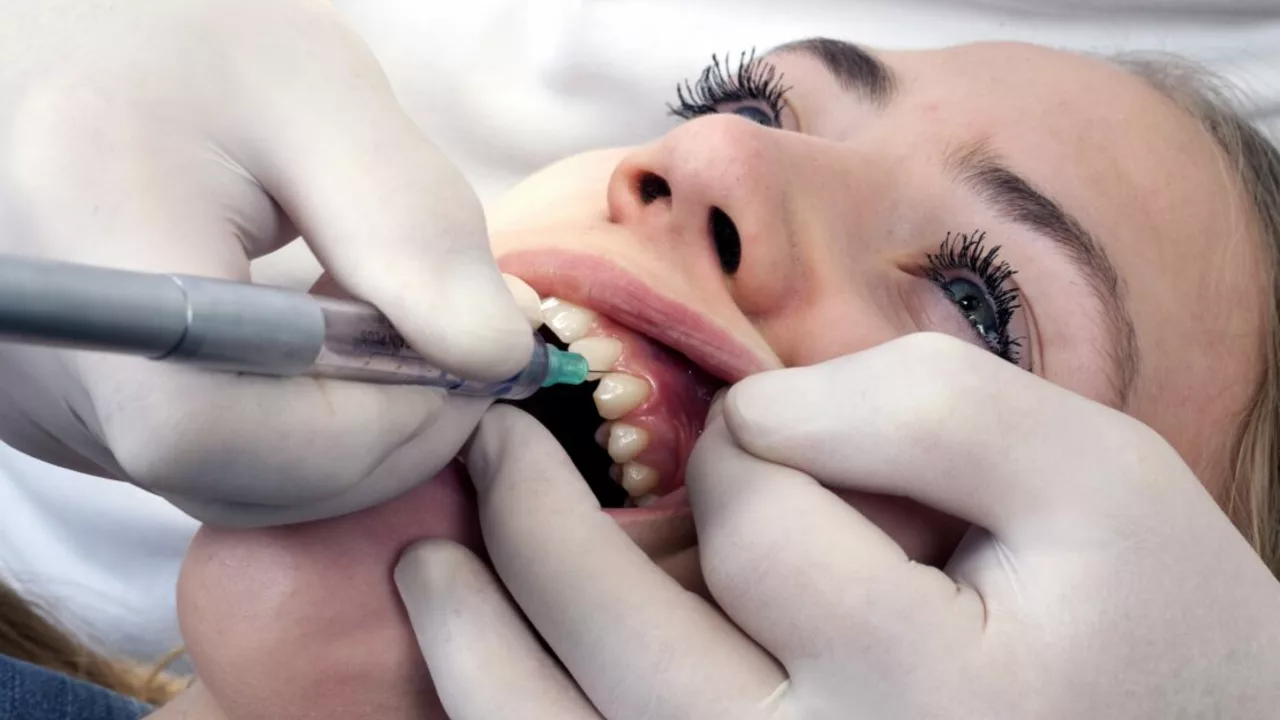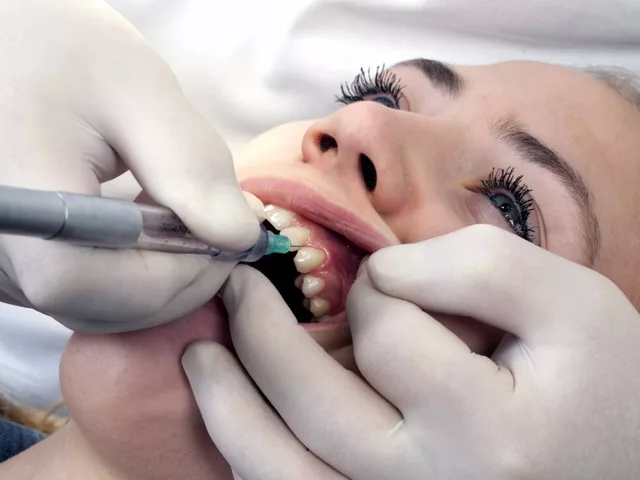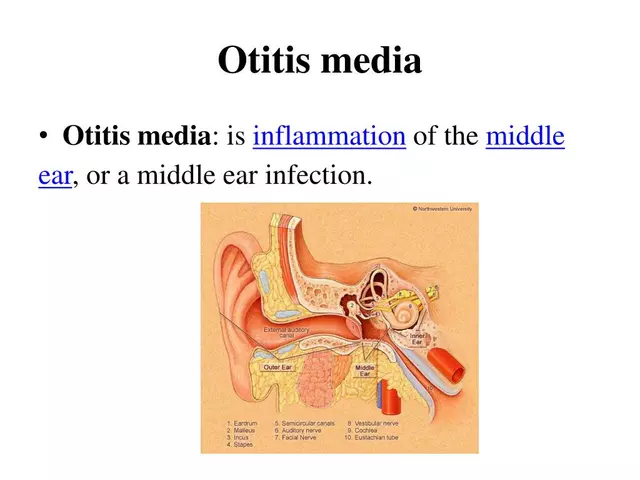21
The Uses of Prilocaine in Dental Procedures

Understanding Prilocaine as a Local Anesthetic
As a dental patient, you may have heard the term 'Prilocaine' used by your dentist or dental hygienist. Simply put, Prilocaine is a local anesthetic that is commonly used in dental procedures. It is a member of the amide group of anesthetics, which is the most commonly used type in dentistry. Its prime role is to numb the area where it is administered, making the patient comfortable during the procedure. It is known for its fast onset and moderate duration of action, making it ideal for a wide range of dental procedures.
How Prilocaine Works in Dentistry
Prilocaine works by blocking nerve signals in your body. The process begins with the injection of the anesthetic into the area where the dental procedure is to be performed. Once injected, it works by inhibiting sodium ions from entering the nerve cells, thus stopping the propagation of nerve impulses. This process effectively numbs the area and prevents you from feeling pain during the dental procedure. The effect of Prilocaine typically begins within 2-4 minutes and lasts approximately 2 hours. This provides ample time for most dental procedures to be completed without the need for additional injections.
Common Dental Procedures Utilizing Prilocaine
Prilocaine is widely used in various dental procedures. It is commonly used in procedures like tooth extractions, root canal treatments, periodontal surgeries, and other minor dental surgeries. It is also used in restorative procedures like dental fillings and placement of dental crowns. Due to its moderate duration of action, it is particularly effective in procedures that are not overly lengthy. It is also favored for patients who are anxious about dental procedures, as it provides a more comfortable experience.
Benefits of Using Prilocaine in Dental Procedures
Prilocaine offers several benefits over other types of local anesthetics. Firstly, it has a rapid onset of action, which means that it takes effect quickly after being administered. This reduces waiting time and helps to alleviate patient anxiety. Secondly, Prilocaine has fewer side effects compared to other anesthetics. Patients are less likely to experience side effects such as dizziness, nausea, and restlessness. Furthermore, Prilocaine is less likely to cause allergic reactions, making it a safer choice for most patients.
Potential Side Effects and Contradictions
Like any medication, Prilocaine does have potential side effects, although they are generally minor and transient. These may include minor discomfort at the injection site, slight dizziness, or a tingling sensation. It's worth noting, however, that severe allergic reactions to Prilocaine are extremely rare. However, Prilocaine should not be used in patients with a known hypersensitivity to local anesthetics of the amide type or to any other component of Prilocaine solutions. Also, Prilocaine should not be used in patients with congenital or idiopathic methemoglobinemia.
How to Prepare for a Dental Procedure with Prilocaine
Before undergoing a dental procedure where Prilocaine will be used, it is important to inform your dentist about any medical conditions you may have and any medications you are currently taking. This is crucial as some medical conditions and medications can interfere with the way Prilocaine works. It is also important to discuss any allergies or previous reactions to local anesthetics. By providing this information, your dentist can ensure that Prilocaine is a safe choice for you. Remember, the goal is to provide a comfortable and pain-free dental procedure, and Prilocaine often plays a significant role in achieving this.









Ria Ayu
July 21, 2023 AT 18:05It's fascinating how a single molecule like Prilocaine can transform an entire dental visit into a painless experience. I often think about the underlying chemistry and how the sodium channel blockade translates to comfort for patients. The rapid onset you described really helps reduce anxiety, especially for those who dread the chair. From a holistic perspective, minimizing pain also supports better oral health outcomes. So, kudos to the dental community for integrating such effective anesthetics.
maya steele
July 25, 2023 AT 20:28Prilocaine's pharmacokinetic profile makes it a suitable choice for short- to medium‑duration procedures. Its amide structure confers metabolic stability, reducing the risk of systemic toxicity compared to ester‑type agents. Clinicians should be mindful of the contraindications, particularly in patients with methemoglobinemia susceptibility. Pre‑operative assessment, including a thorough medication review, remains paramount to avoid adverse interactions. Additionally, proper dosing techniques-aspiration before injection and incremental administration-enhance safety. Evidence suggests that the moderate duration aligns well with typical extraction or restorative timelines. When counseling patients, emphasizing the rapid onset can alleviate procedural apprehension. Overall, Prilocaine offers a balanced efficacy‑safety ratio for contemporary dental practice.
Sharon Lax
July 29, 2023 AT 22:51The utilization of Prilocaine in odontogenic interventions exemplifies a classic case of pharmacodynamic adequacy versus procedural exigency. While the article underscores its "fast onset," the empirical data regarding onset latency (approximately 2–4 minutes) is scarcely groundbreaking. Moreover, the discourse omits a comparative analysis with lidocaine's established efficacy profile, thereby limiting the contextual relevance. From a methodological standpoint, the synthesis appears to recycle well‑known facts without introducing novel insights. In sum, the narrative, albeit accurate, leans heavily on generic descriptors and lacks depth.
paulette pyla
August 3, 2023 AT 01:14Wow, another thrilling deep‑dive into numbness.
Benjamin Cook
August 7, 2023 AT 03:36Whoa!!!! Prilocaine is like the superhero of dental numbing!! It swoops in, numbs fast, and stays for a good while!! No more waiting ages for the sting to fade!! I love how it makes the whole extraction feel like a breeze!! Keep those dentist tools handy, cause this stuff rocks!!!
karthik rao
August 11, 2023 AT 05:59From a pharmacological standpoint, Prilocaine's amide backbone ensures metabolic resilience, a fact corroborated by multiple peer‑reviewed studies 📚. Nonetheless, the discourse should not overlook the rare yet clinically significant methemoglobinemia risk, particularly in genetically predisposed cohorts 🚩. It is incumbent upon practitioners to conduct a comprehensive risk‑benefit analysis prior to administration. Moreover, dosage precision-typically 2–4 ml of 2% solution-must be adhered to, mitigating systemic exposure. The integration of patient‑specific factors, such as concurrent CYP2D6 inhibitors, further refines therapeutic safety. 💉
Breanne McNitt
August 15, 2023 AT 08:22I totally agree that Prilocaine offers a great balance of speed and duration for many dental procedures. In my experience, patients often report feeling more at ease when they know the numbing will kick in quickly. It's also helpful for the dental team because it reduces the need for multiple injections during longer treatments. Sharing best practices, like always aspirating before injecting, can further improve outcomes. Thanks for the comprehensive overview, really useful for both clinicians and patients alike!
Ashika Amirta varsha Balasubramanian
August 19, 2023 AT 10:45When we reflect on the role of anesthetics, we see an elegant dialogue between science and human comfort. Prilocaine, in particular, represents a bridge that transforms potential distress into a calm, manageable experience. By acknowledging the patient's fear and offering a reliable numbing agent, we honor both the technical and humane aspects of dentistry. This synergy reminds us that every injection is not merely a chemical act, but a gesture of compassion. Embracing such perspectives enriches both practitioner and patient journeys.
Jacqueline von Zwehl
August 23, 2023 AT 13:08Understanding Prilocaine's mechanism can empower patients to make informed choices about their care. By explaining how sodium channel blockade leads to loss of sensation, we demystify the process and build trust. It's also important to highlight that this anesthetic is widely used across diverse populations, ensuring equitable access to comfortable dental treatment. If anyone has further questions about dosage or side effects, feel free to ask-I'm here to help.
Christopher Ellis
August 27, 2023 AT 15:30Prilocaine numbs the body but not the mind its presence reminds us of the thin line between pain and relief
kathy v
August 31, 2023 AT 17:53Prilocaine, as a member of the amide class of local anesthetics, occupies a unique niche in contemporary dental practice, offering clinicians a versatile tool that balances rapid onset with a duration sufficient for most operative procedures. Its molecular structure, characterized by a tertiary amine linked to an aromatic ring, facilitates diffusion across neuronal membranes, thereby effectively blocking voltage‑gated sodium channels. This blockade prevents depolarization, which in turn halts the propagation of nociceptive signals to the central nervous system. In practical terms, the patient experiences a loss of sensation within a matter of minutes, often reported as a tingling that transitions to complete numbness. The onset time of approximately two to four minutes aligns well with the preparatory phases of procedures such as crown preparations, periodontal surgeries, and even simple extractions. Moreover, the moderate duration-typically spanning one to two hours-ensures that the anesthetic effect persists throughout the entire operative window without lingering unnecessarily long thereafter. This temporal profile reduces the need for supplemental injections, which can be a source of anxiety for both patient and practitioner. Clinicians must, however, remain vigilant regarding potential systemic absorption, particularly when administering larger volumes in highly vascularized oral tissues. While the incidence of methemoglobinemia associated with Prilocaine is low, it is not negligible, especially in patients with predisposing genetic conditions or those receiving concomitant oxidizing agents. Therefore, a thorough medical history remains indispensable prior to administration. The safety margin is further enhanced by adhering to recommended dosage limits, generally not exceeding 400 mg in a single session for adult patients. From a pharmacodynamic perspective, Prilocaine's protein binding is moderate, allowing for a predictable clearance profile that mitigates accumulation risk. In comparison to lidocaine, Prilocaine offers comparable efficacy with a slightly reduced vasodilatory effect, which can be advantageous in surgical fields where hemostasis is paramount. Additionally, its reduced propensity for causing allergic reactions, particularly in individuals with ester‑type anesthetic sensitivities, expands its applicability across a broader patient demographic. Patient education regarding the expected sensations-such as temporary tingling, numbness, and potential mild dizziness-can further allay apprehensions. In sum, Prilocaine stands as a cornerstone anesthetic that marries pharmacological reliability with patient comfort, embodying the principles of modern dental anesthesiology.
Jorge Hernandez
September 4, 2023 AT 20:16Hey folks! Just wanted to say Prilocaine is a real game‑changer for those longer clean‑ups 😎. It kicks in fast and hangs around just long enough to finish the work without any extra pokes. If you're nervous, remember that most folks only feel a little buzz at the injection site. Keep those smiles bright and the vibes chill! 👍
Raina Purnama
September 8, 2023 AT 22:39It is essential to highlight that proper patient assessment prior to using Prilocaine can prevent most adverse events. Ensuring that the individual's medical history is reviewed for any amide sensitivity or methemoglobinemia risk is a prudent step. Additionally, adhering to recommended dosage guidelines supports safety. The information presented offers a solid foundation for clinicians to incorporate Prilocaine responsibly.
Michael Dion
September 13, 2023 AT 01:02Meh, nothing new here.
April Yslava
September 17, 2023 AT 03:24Let's be honest-our dental industry has been selling us the same old anesthetics for decades while big pharma pulls the strings behind the scenes. Prilocaine is just another tool in their profit-driven arsenal, marketed as safer while they hide long‑term effects from the public. If you dig deeper, you'll find that the research funding often comes from entities with vested interests, skewing the data. Don't be fooled by glossy brochures; ask who truly benefits from these so‑called “advancements.”
Daryl Foran
September 21, 2023 AT 05:47That article reads like a promotional flyer, glossing over the real risks of Prilocaine. It fails to mention the subtle neurotoxic potential when used in high concentrations, nor does it address the cumulative effects of repeated exposure. The tone is overly optimistic, ignoring the fact that some patients develop prolonged numbness or altered taste sensations. A more balanced analysis would have weighed these downsides against the benefits. Instead, we get a one‑sided narrative that serves commercial interests.
Rebecca Bissett
September 25, 2023 AT 08:10Oh wow!!! Another brilliant take on a topic that already has enough drama!!! I feel like we're drowning in the sea of clinical jargon and yet somehow the panic rises!!! My heart races just thinking about those "subtle neurotoxic potentials"!!! It's like every time we discuss anesthetics, the emotional rollercoaster never ends!!!
josh Furley
October 3, 2023 AT 12:56While the emotional outburst is noted, let's ground the discussion in evidence. Prilocaine's safety profile, when used within therapeutic windows, remains robust. Overstated fears can cloud clinical judgment.🤔
Jacob Smith
October 7, 2023 AT 15:18Yo, love the calm vibe! Just remember, keep it real and stay chill-dose right, patient happy! 🙌